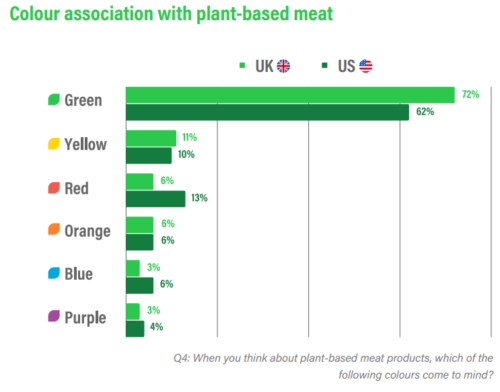The latest on plant-based foods: a round-up
Every now and then I like to collect items on what’s going on in the plant-based food world.
These products have their ups and downs, with much inconsistency.
Here are some recent items demonstrating some of those inconsistencies.
- Almost all plant-based meat and dairy categories are down in 2025, Spins reports: Steep dollar and volume declines ripple across the plant-based meat market, while soy- and coconut-milk and shredded non-dairy cheese offer glimmers of hope amid slumping alt dairy sales… Read more
- Plant-based meat manufacturer freezes prices for year in tariff response: Plant-based meat’s march to price parity hits a tariff wrinkle, as private label provides a growth opportunity for the slumping category… Read more
- What do consumers look for in plant-based proteins? ‘People are really pivoting towards plant-centered foods and not trying to hide it as something else,’ according to the founder of Nourish, who also reports shoppers want complete proteins that are easy to digest… Watch now
- How can plant-based brands bridge the gap between innovation and adoption? As inflation continues to strain household budgets, consumers are zeroing in on grocery staples that offer clear nutritional and economic value, which often exclude plant-based foods… Read more
- Plant-based foods gain ground as consumer perceptions shift again: Perceptions of plant-based foods improve as brands invest in taste, texture and nutrition… Read more
- How plant-based dairy brands can address the quality and perception gap: Improving consumer perception of plant-based dairy may start with better biosolutions… Read more
- Beyond Meat doubles down on plant-based chicken with Beyond Chicken Pieces: Beyond Meat’s Chicken Pieces launched earlier this week in 1,900 Kroger stores nationwide… Read more
- Alt meat meltdown: Beyond Meat’s debt causes concern, Meati set for sale: In a one-two punch to the plant-based meat market this week, Beyond Meat reports another bad quarter amid rising financial concerns, and Meati readies itself for sale… Read more
- Beyond the noise: Ethan Brown on plant-based meat’s next chapter” With consumer skepticism around ingredient transparency, faltering retail momentum and backlash from the meat industry, the company finds itself at a crossroads – one it is determined to navigate with what CEO Ethan Brown calls “radical transparency.”… Read more



